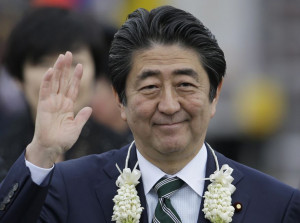
The Conference was empowered by the UN General Assembly Resolution 71/258, which stipulates that in a year a preliminarily draft of a biding document that will then be handed over by this respected to all the states that are in possession of nuclear-weapons in order to oblige them to liquidate their nuclear stockpiles.
For almost two decades the UN has been discussing the problem of the liberation of mankind from the constant threat of imminent annihilation, but no avail. So the above mentioned Resolution was the first real step taken by the main international organization in the actual implementation of ideas that most states seem to agree on.
It is important to note that Resolution 71/258 was adopted by the UN General Assembly without a comprehensive vote. A sort of a voting procedure was actually held before the Resolution was adopted in Geneva, during a meeting of the special working group of representatives of 107 countries that all shared a common position on the need to introduce a legally binding document.
It’s curious that the informal voting that took place in Geneva was disregarded by the three leading nuclear powers, namely the United States, Russia China. The reasoning between this step is pretty clear, however, that’s a topic for a completely separate article.
Two other nuclear powers, Britain and France, were among the 22 Western countries that voted “against” the idea of a binding document to be introduced, while another 68 participants of the working group for this idea, while another 13 abstained. Among the latter there was also Japan – one of the main contenders for occupying a privileged position at the world’s stage.
Thus, to sum up the prospects of nuclear disarmament prospects one should note that a plan to introduce a legally binding documents inducing nuclear disarmament has been opposed six months ago, by all the five states that are officially possess nuclear devices. Let’s us recall also that that the same five are among the permanent members of the UN Security Council, that is, the highest international body responsible for various aspects of ensuring international security.
Now the same “magnificent five” confirmed its position on its refusal to take any part in the preparation of the document that was introduced by the UN General Assembly Resolution 71/258.
From the above listed facts one can draw two conclusions. First, it means that the legally binding nuclear disarmament plant will be adopted without the participation of those who should be primarily engaged in the disarmament process. Hence, the actual binding force this UN document will be neglectable.
What is curious in this regard, however, is the position that Japan occupied in this face-off, essentially taking the side of the “magnificent five”, since it is undoubtedly the next step in the direction of Japan’s withdrawal from any attempts to keep at least the semblance of neutrality on the issue of nuclear disarmament.
However, until recently, Japan had been the unofficial leader of the international movement for the elimination of nuclear weapons, which was an important component of the positive international political capital that it managed to acquire. This capital was further promoted by the image of “the only country that actually suffered from nuclear bombings.”
Another no less important component is the fact that Japan remains one of the main sources of economic assistance to the states that are forming the “bulk” of the movement for the elimination of nuclear weapons.
Japan is well aware of the consequences of the inevitable political departure from the image of a peaceful country – an opponent of nuclear weapons, that is always ready to help the weak.
Japan’s Foreign Ministry has been arguing that it sees no sense in participating in the preparations of the legally binding document, when the “magnificent five”is reluctant to take any real steps in the direction of actual nuclear disarmament. Additionally, Tokyo argues, that the mounting pressure in Korea has put the matter of disarmament on the back burner. However, the majority of states that were behind the UN General Assembly Resolution 71/258 didn’t expect that Japan would leave them just that easily, while the latter is unable to explain to those states without losing face that the situation has changed and Tokyo in no position to pursue any ideals.
So why would Tokyo risk its political capital? Well, we’ve witnessed the gradual formation of the US-China-Japan strategic triangle in the Asian-Pacific Region, in which the interests of each of the “corners”, as well as the relations in all three “sides” are subject to dynamic change.
The inevitable process of the return of Japan to the “Great Political Game” (which it diligently opposed during the entire post-war period) is associated with new foreign policy risks for Tokyo. Of these, the most serious one is the phenomenon of China’s transformation into one of the two leading world powers.
Let’s try to imagine ourselves in the shoes of Japanese politicians, the threat that China presents to Japan can be to some extent be diminished by Washington’s promise to provide a “nuclear umbrella” for Tokyo in the time of need. But it is obvious that the recent election rhetorics in the US, that was an example of a special sort of public disgrace has uncovered the problems that were visible long time ago in US-Japanese bilateral relations .
So there is every reason to closely follow the changing Japan’s rhetorics on the matter of nuclear disarmament, for it’s now a major player in the ongoing global game that has to find its way out of the nuclear deterrence riddle.
Vladimir Terekhov, expert on the issues of the Asia-Pacific region, exclusively for the online magazine “New Eastern Outlook.”
